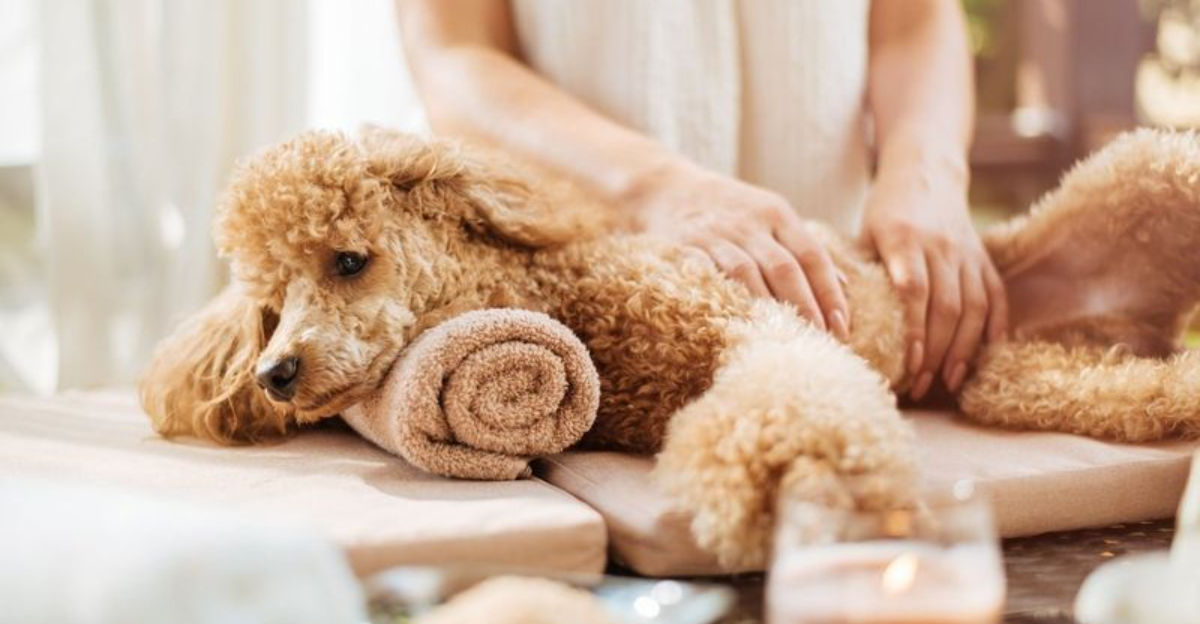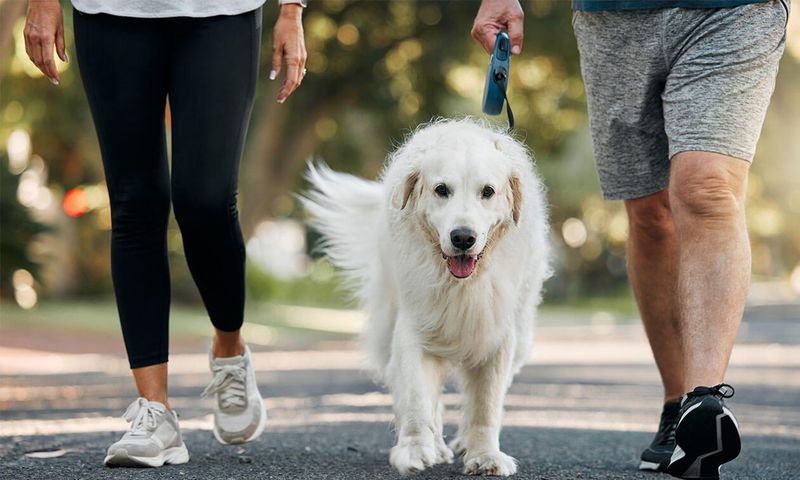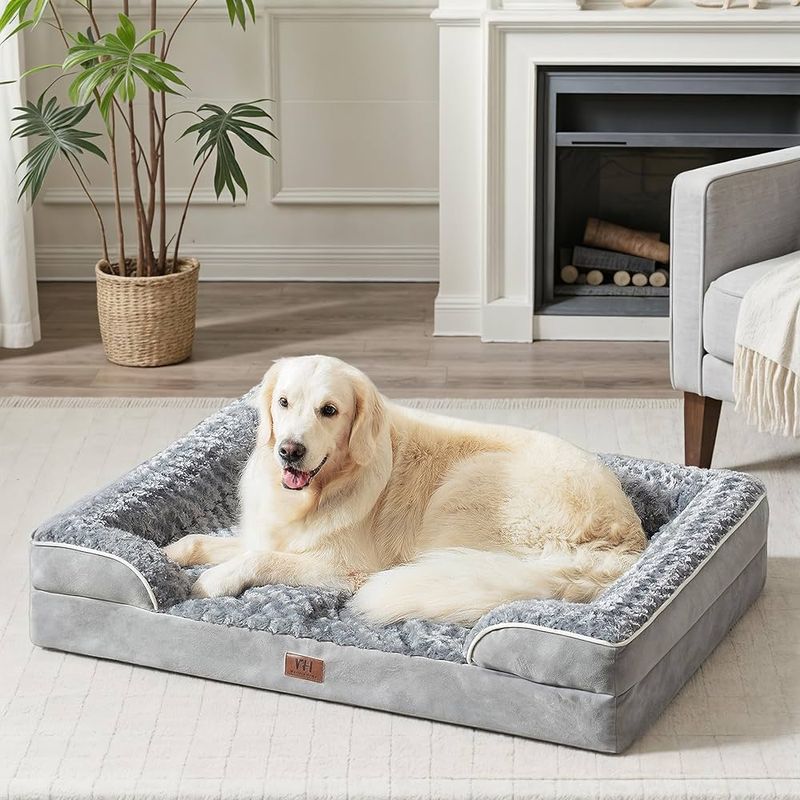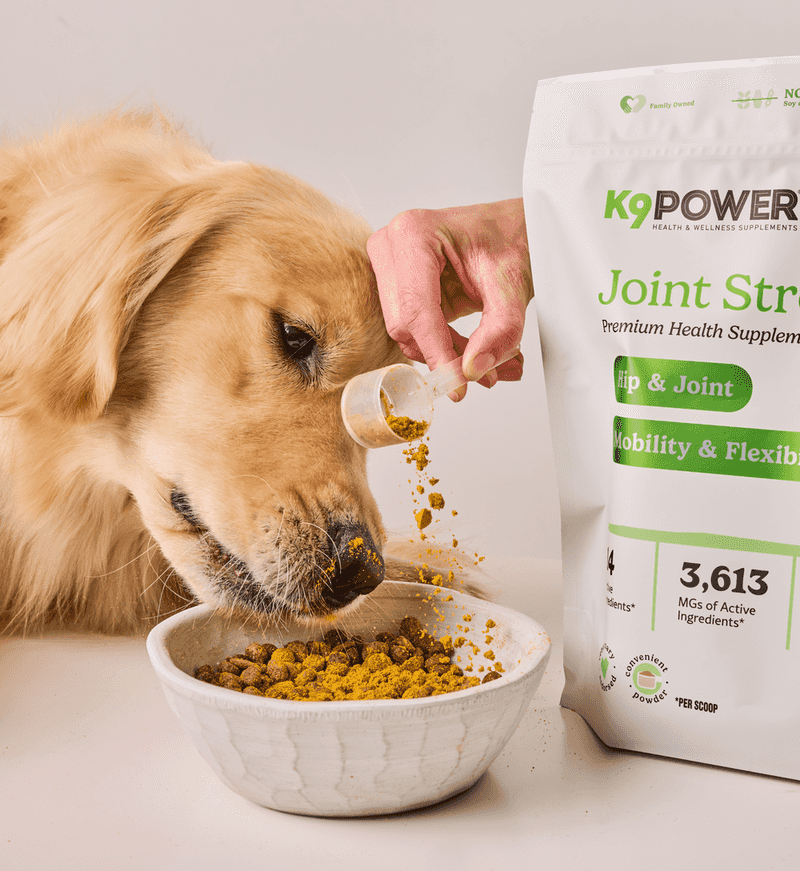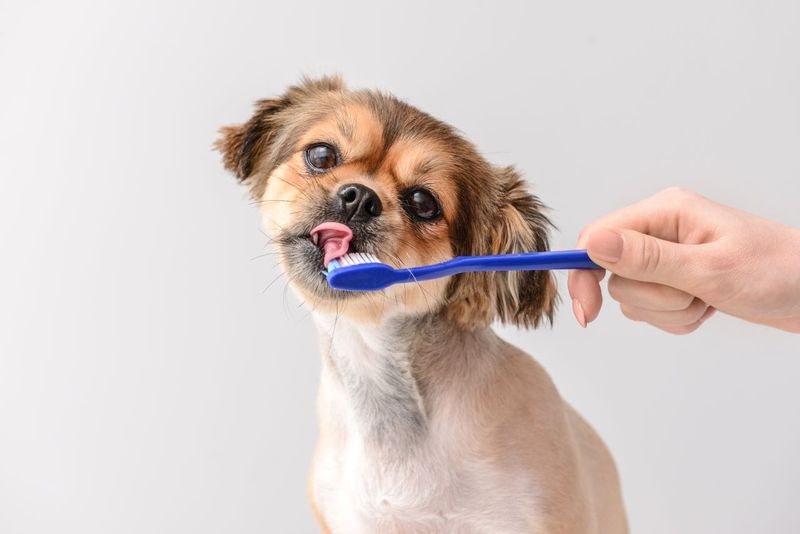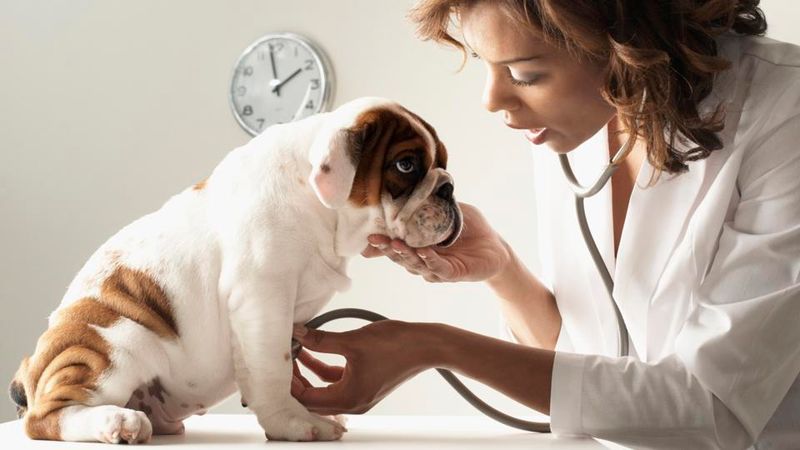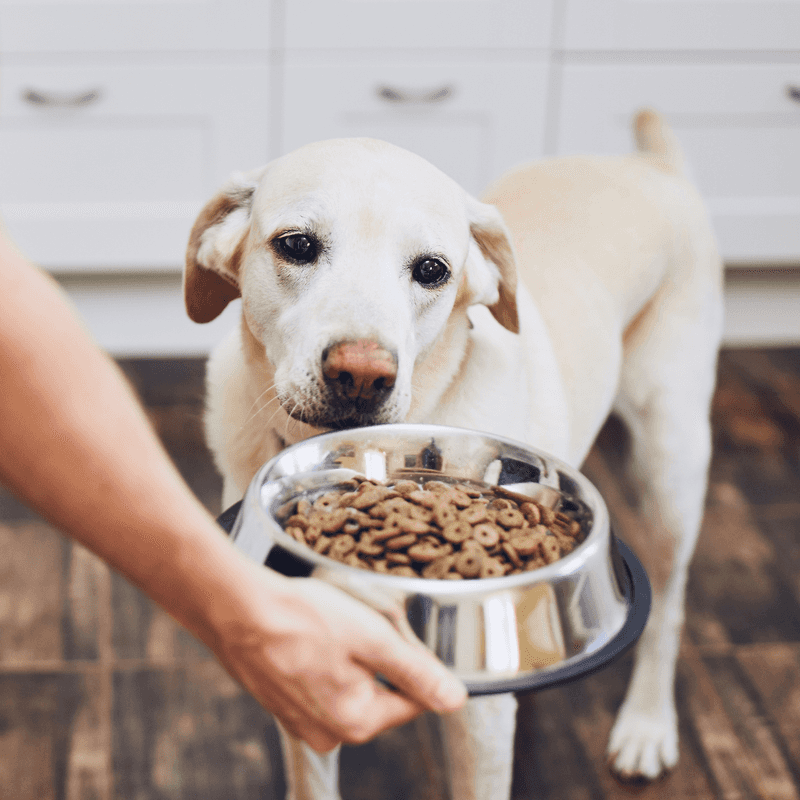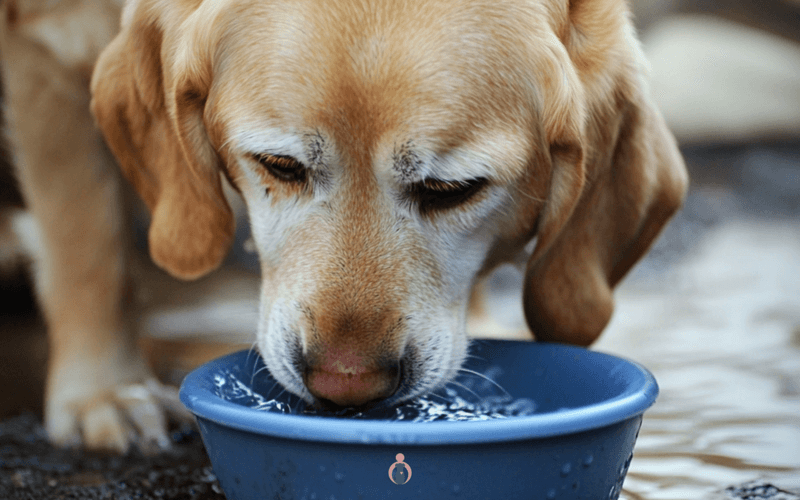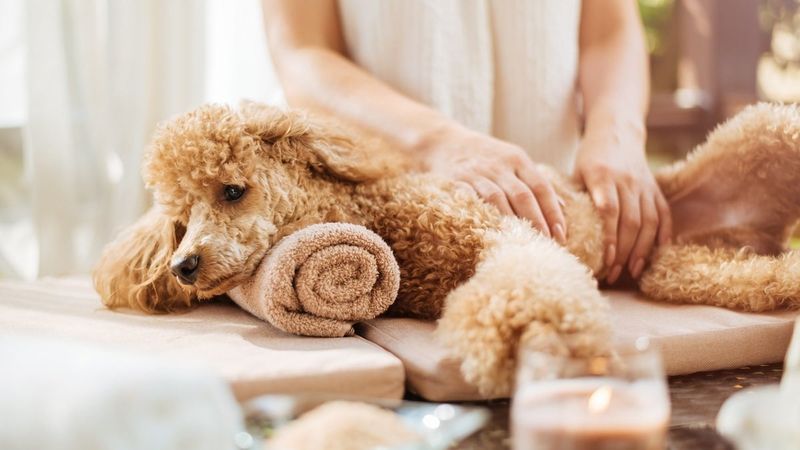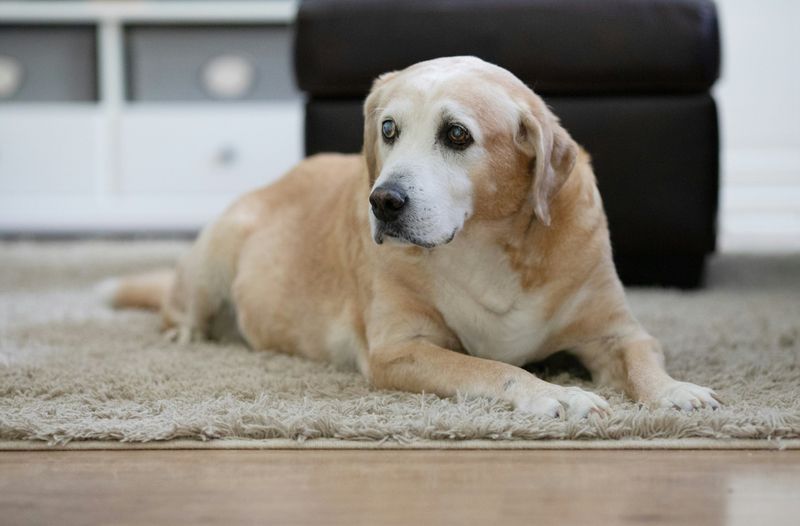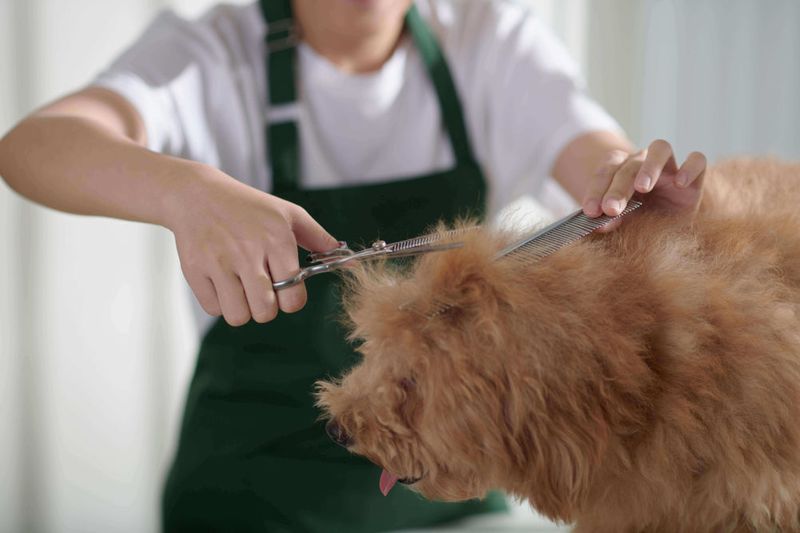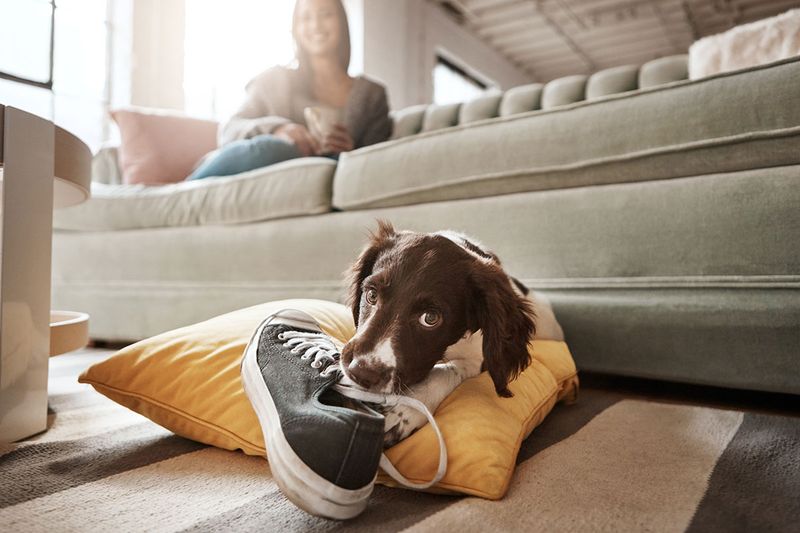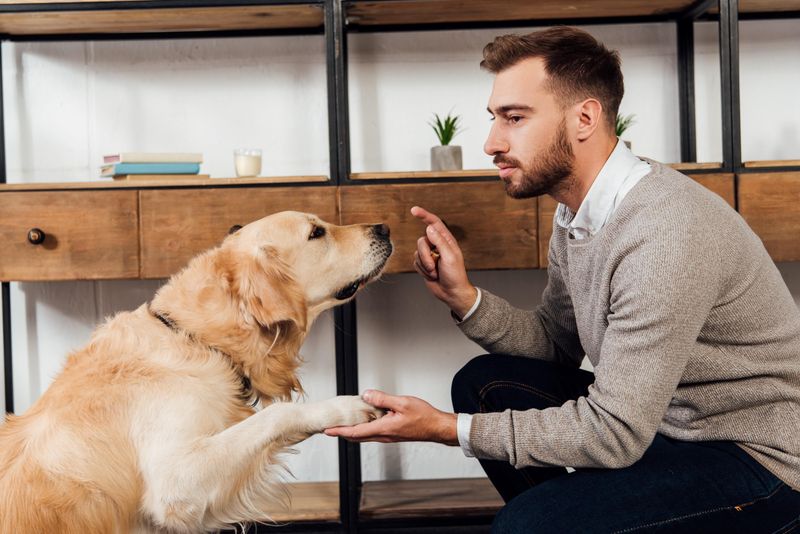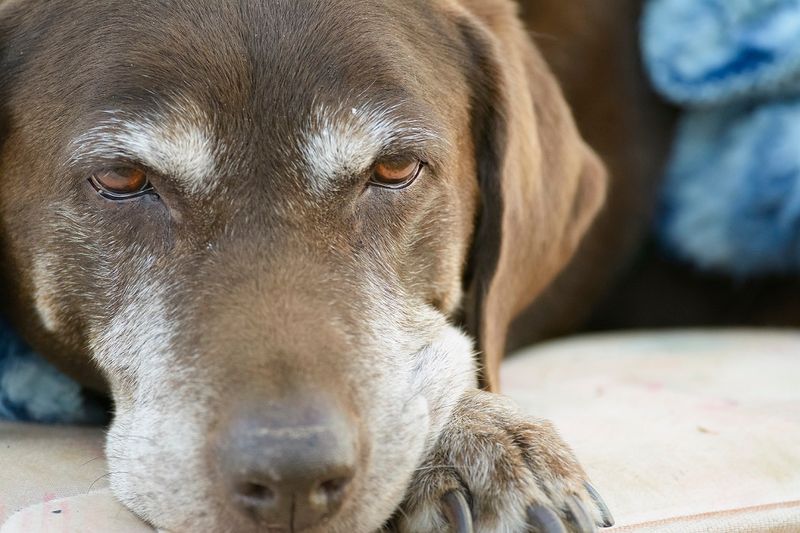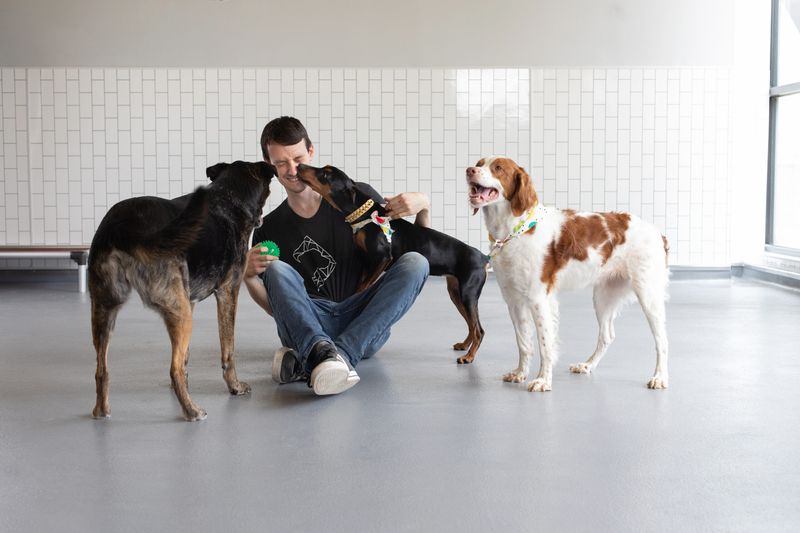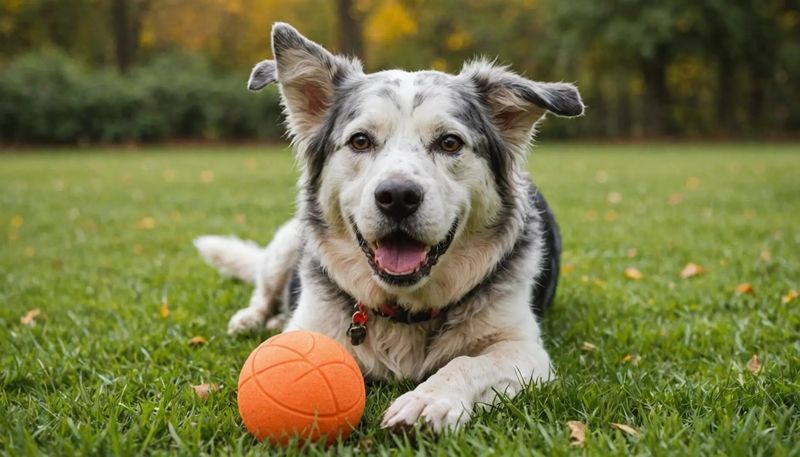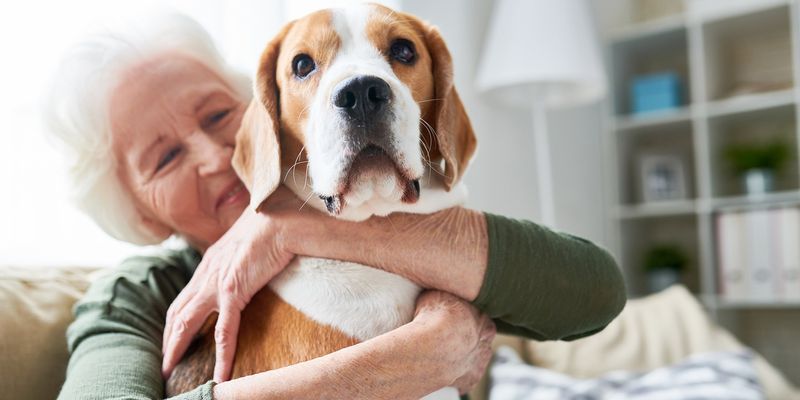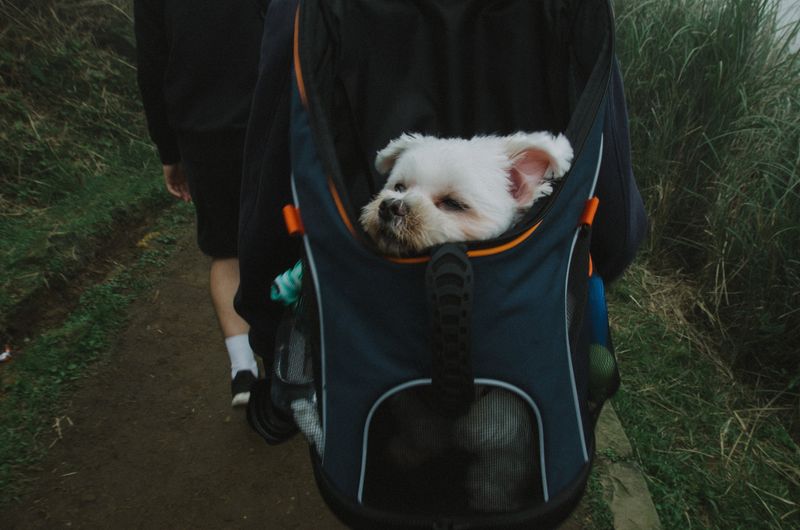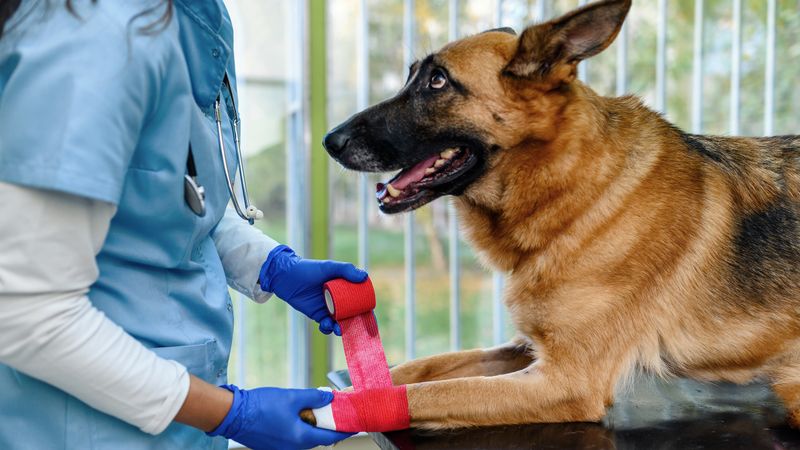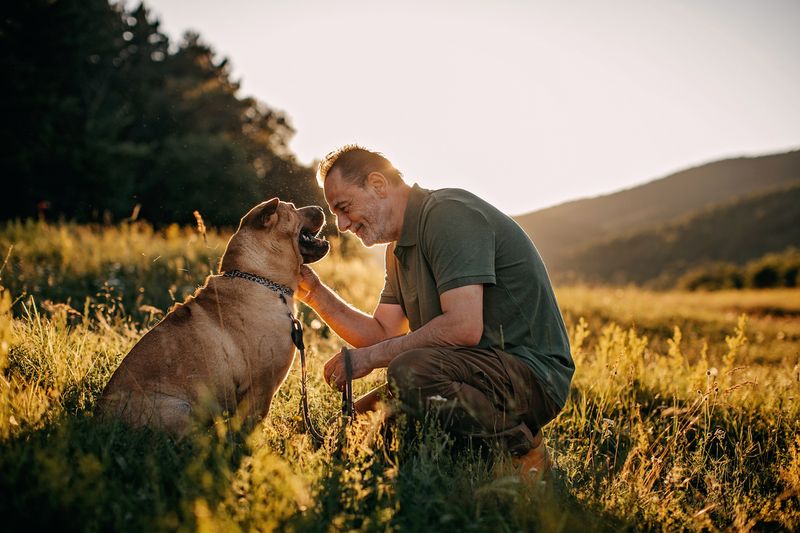As your faithful companion enters its golden years, ensuring comfort and happiness becomes paramount. Aging dogs, much like older humans, may face health challenges and require more attention and care. Implementing a few thoughtful strategies can significantly enhance their quality of life, preserving the joy and companionship they bring to your world. Whether it’s through gentle exercise, a cozy bed, or simply more of your time, these 20 tips are designed to help you provide the best care for your aging dog. Embrace each moment and make their twilight years truly special.
Gentle Exercise Routine
Maintaining a gentle exercise routine is crucial for your aging dog. Regular walks not only boost their physical health but also provide mental stimulation. Tailor the length and intensity to suit your dog’s needs, ensuring it remains enjoyable and not overexerting.
Observe for any signs of fatigue or discomfort, making adjustments as necessary to keep them comfortable. Exercise helps maintain muscle mass and joint flexibility, essential for senior dogs.
Finding a peaceful, familiar route can enhance their sense of security and happiness, making each outing a joyful bonding experience.
Comfortable Bedding
Creating a comforting sleeping environment is essential for your senior dog. Invest in an orthopedic bed that supports aching joints and provides a restful sleep. Place it in a quiet, draft-free area, offering a sense of security.
Include a soft blanket to keep them warm, especially in colder weather. A familiar toy can add extra comfort and familiarity.
Regularly wash the bedding to maintain cleanliness and hygiene, ensuring a pleasant space for relaxation. These small adjustments can make a significant difference in their comfort and well-being.
Joint Supplements
As dogs age, joint health becomes a primary concern. Introducing joint supplements like glucosamine and chondroitin can reduce inflammation and promote mobility. Consult your veterinarian to determine the best options for your dog’s specific needs.
These supplements can alleviate discomfort, improving your dog’s overall activity levels. Implement them as part of a balanced diet to maximize their benefits.
Monitoring the dog’s response to supplements will ensure they are effective, allowing adjustments as needed. These small additions to their diet can have lasting positive effects on their quality of life.
Dental Care
Oral health is vital for the overall well-being of your aging dog. Regular brushing can prevent dental diseases and reduce bacterial spread to vital organs. Use a toothbrush and toothpaste specifically designed for dogs, ensuring gentle care.
Establishing a routine will make the process more comfortable for both you and your pet. Dental chews can provide additional oral hygiene support.
Routine veterinary check-ups are essential to identify any potential issues early. By focusing on dental care, you help maintain your dog’s health and prolong their life, ensuring more happy moments together.
Regular Vet Check-Ups
Frequent vet visits are crucial for monitoring the health of your aging dog. These check-ups help identify potential issues early, allowing timely interventions. Regular examinations provide peace of mind, knowing your pet’s health is closely monitored.
Vets can recommend specific care plans tailored to your dog’s individual needs, from dietary changes to medical treatments. Keep a record of all visits and recommendations to track their health progress.
By prioritizing these visits, you ensure a proactive approach to their well-being, enhancing their quality of life as they age gracefully.
Balanced Diet
A balanced diet is the cornerstone of your aging dog’s health. Providing meals rich in protein, fiber, and essential nutrients supports their energy levels and overall vitality. Consult with your vet to determine the best diet, considering any specific health concerns.
Fresh ingredients like lean meats and vegetables can enhance nutrition. Avoid excessive treats, focusing instead on wholesome food that contributes to their well-being.
Adjust portions as needed to maintain a healthy weight, which is crucial for joint health and longevity. A thoughtful diet keeps your dog happy and active during their senior years.
Hydration
Hydration plays a vital role in your dog’s health, especially as they age. Ensure constant access to fresh water, encouraging regular drinking. Proper hydration supports organ function and helps prevent urinary tract issues.
Monitor their water intake, adjusting as necessary based on activity levels and weather conditions. Consider adding moisture-rich foods to their diet to boost hydration.
Keep water bowls clean and accessible throughout the house and yard. Consistent hydration aids in digestion and overall vitality, contributing to a comfortable and healthy lifestyle for your senior companion.
Cognitive Stimulation
Keeping your aging dog’s mind sharp is just as important as physical health. Introduce cognitive games and toys to stimulate their mental faculties and engage their curiosity. Puzzle toys and hide-and-seek games work wonders for mental enrichment.
Engage in short training sessions to reinforce commands while rewarding them with treats, enhancing their learning experience. These activities provide entertainment and strengthen the bond between you and your pet.
Such stimulation prevents cognitive decline, ensuring your furry friend remains sharp and engaged in their golden years.
Massage Therapy
Massage therapy is a delightful way to soothe your aging dog’s aches and pains. Gentle massages improve circulation and reduce muscle tension, promoting relaxation and comfort.
You can learn basic techniques to apply at home or seek professional canine massage therapists for more specialized care.
Regular massages enhance flexibility and reduce stress, contributing to overall well-being. By dedicating time to this nurturing practice, you not only relieve physical discomfort but also deepen the emotional connection with your beloved pet.
Temperature Control
As dogs age, their ability to regulate body temperature diminishes. Ensure your senior dog stays comfortable by maintaining an optimal temperature in their environment. Use fans or air conditioning during hot months and cozy blankets or heaters in colder seasons.
Monitor their comfort by observing behavior and adjusting as necessary. Proper temperature control helps prevent heatstroke or hypothermia, both of which pose greater risks to older dogs.
Creating a stable and pleasant environment ensures your dog remains content and healthy, regardless of the weather outside.
Grooming
Regular grooming is essential for your senior dog’s comfort and health. Brushing helps remove loose fur and prevents matting, while also stimulating the skin. Use gentle, appropriate tools to avoid discomfort.
Bathing should be done as needed, using mild shampoos that cater to sensitive skin. Check for any skin irritations or abnormalities during grooming sessions.
Regular grooming not only maintains physical health but also strengthens your bond with your dog. This routine ensures they look and feel their best, adding to their happiness in their later years.
Safe Environment
Creating a safe environment is pivotal for your senior dog’s mobility and comfort. Ensure floors are free from obstacles, and consider non-slip rugs to prevent falls. Installing stair gates or ramps can provide safe access to different areas of the home.
Keep essential items like water bowls and beds within easy reach to minimize stress. Regularly inspect your home for potential hazards that could affect your dog’s safety.
A well-arranged living space promotes confidence and independence, allowing your furry friend to navigate their surroundings with ease and assurance.
Routine
Routine is comforting for aging dogs, providing them with a sense of security and predictability. Establish a consistent schedule for feeding, exercise, and rest to cater to their needs.
Adhering to regular routines helps manage anxiety and prevents confusion, especially if cognitive decline is present. Monitor your dog’s behavior and adjust the routine as necessary to ensure their comfort.
A well-planned routine enhances their quality of life, allowing them to enjoy daily activities with enthusiasm and ease.
Hearing and Vision Accommodation
As dogs age, their senses may diminish, making accommodation essential. Ensure your home is well-lit and free from clutter to aid their vision. For dogs with hearing loss, consider using vibrations or hand signals to communicate.
Maintain consistent furniture arrangements to avoid disorientation. Keep food and water in consistent locations to minimize confusion.
Being understanding and patient with sensory changes helps your dog adapt comfortably, maintaining confidence and security in their environment.
Social Interaction
Social interaction remains important for older dogs, helping to keep them engaged and happy. Arrange playdates with familiar dogs to encourage gentle play and companionship.
Monitor interactions to ensure they remain positive and avoid overexertion. Short, supervised sessions are ideal for maintaining social skills and emotional health.
These interactions provide mental stimulation and reinforce social bonds, ensuring your senior dog remains a valued member of the community.
Gentle Playtime
Even in their golden years, dogs enjoy playtime tailored to their capabilities. Choose soft toys and games that encourage gentle activity without strain.
Simple games, like fetch with lightweight toys, stimulate their mind and body, offering joy and relaxation. Rotate toys regularly to maintain interest and engagement.
Gentle playtime is a delightful way to bond, keeping their spirits high and ensuring they continue to enjoy life with wagging tails.
Emotional Support
Providing emotional support to your aging dog is as vital as physical care. Spend quality time offering affection and reassurance, deepening the bond you share.
Recognize signs of anxiety or stress and respond with love and patience. Gentle cuddles, soothing words, and calm presence can alleviate worries.
Your attentive companionship enriches their lives, ensuring they feel secure and cherished every day, enhancing their overall well-being.
Adapted Activities
Adapting activities to suit your dog’s changing needs keeps them active and happy. Opt for slower, scenic walks that provide both physical exercise and mental stimulation.
Incorporate activities that align with their abilities, such as leisurely explorations in nature or simple interactive games at home.
This thoughtful approach ensures they remain engaged and fulfilled, enjoying life at a pace that suits them, keeping their tail wagging.
Veterinary Advice on Medication
Consulting with your vet about medication is crucial for managing any health issues in aging dogs. Discuss options to alleviate pain, manage chronic conditions, and enhance life quality.
Regular reviews of prescribed medications ensure they remain effective and adjust as needed. Always adhere to dosage instructions for safety.
Collaborating with your vet fosters proactive care, helping your dog live comfortably and happily throughout their senior years.
Quality Time
Spending quality time with your aging dog enriches their life and strengthens your bond. Engage in activities they love, from relaxed strolls to cozy cuddling sessions.
Cherish these shared moments, creating happy memories that last. Your presence provides joy and comfort, reinforcing their sense of belonging.
Quality time is a precious gift, ensuring your dog feels valued and loved, enhancing their happiness and well-being in their twilight years.
